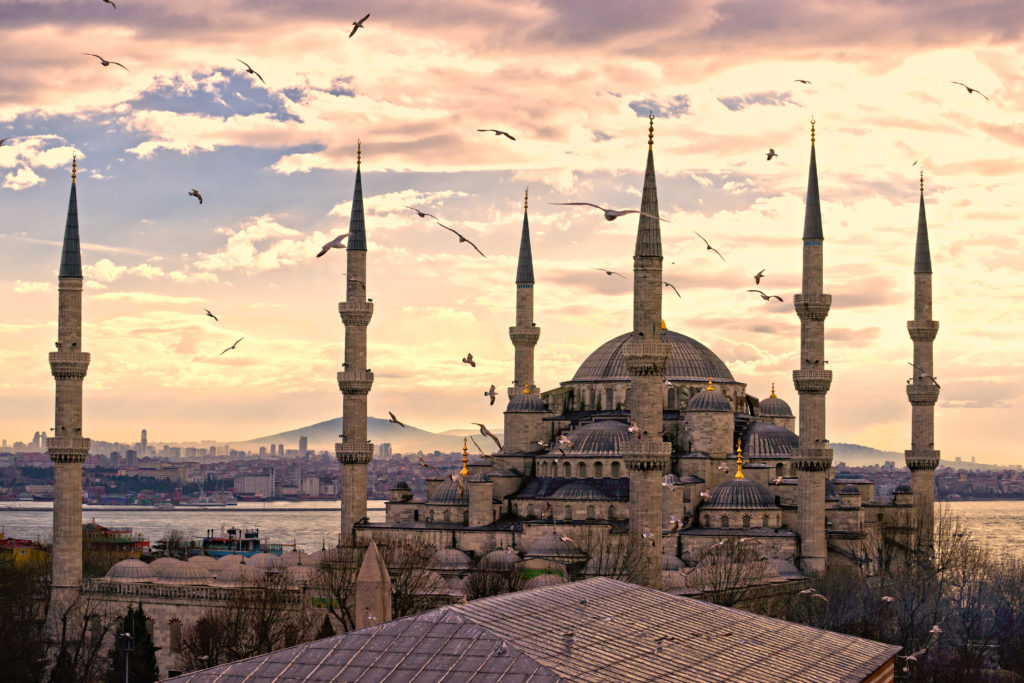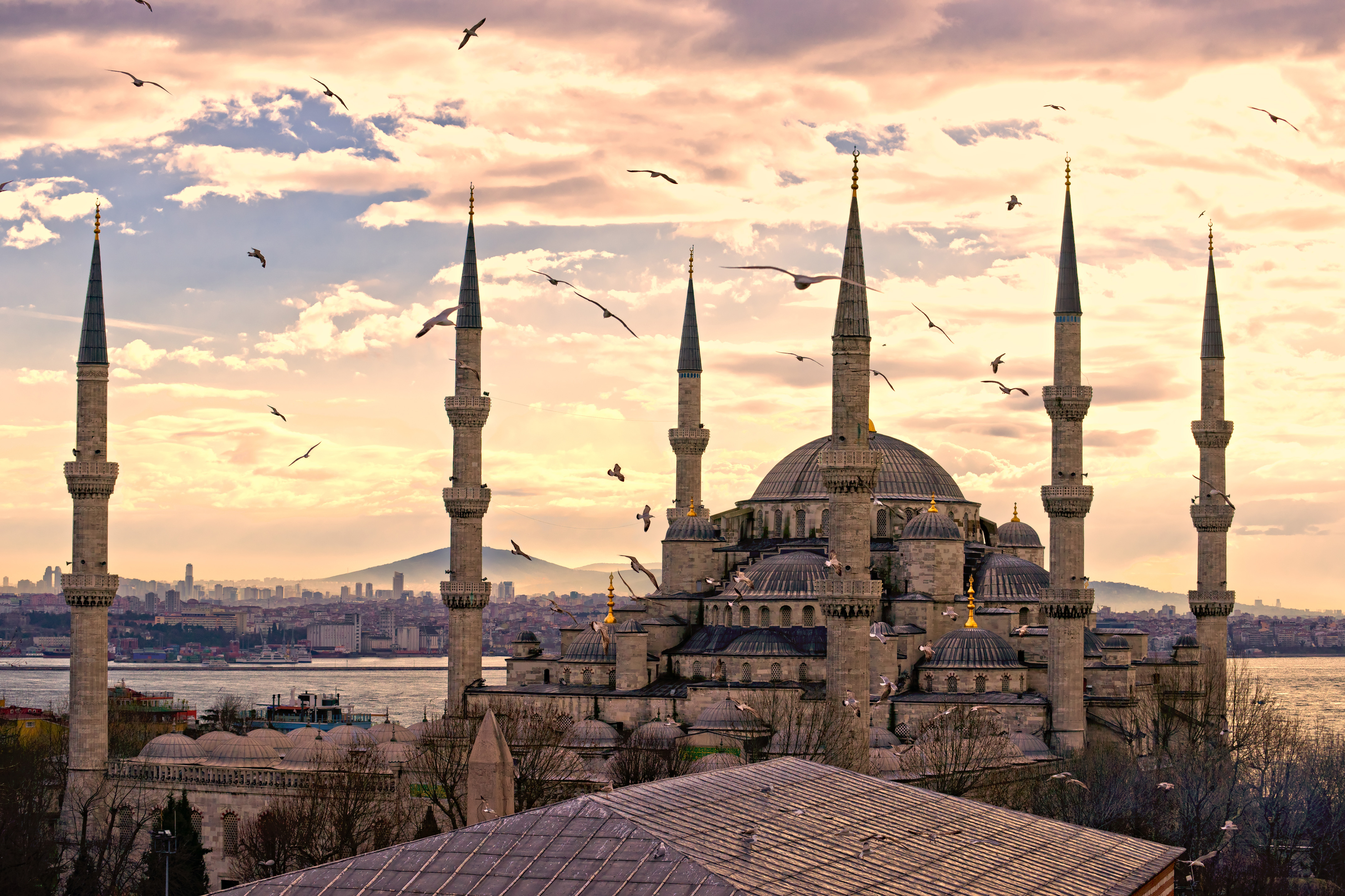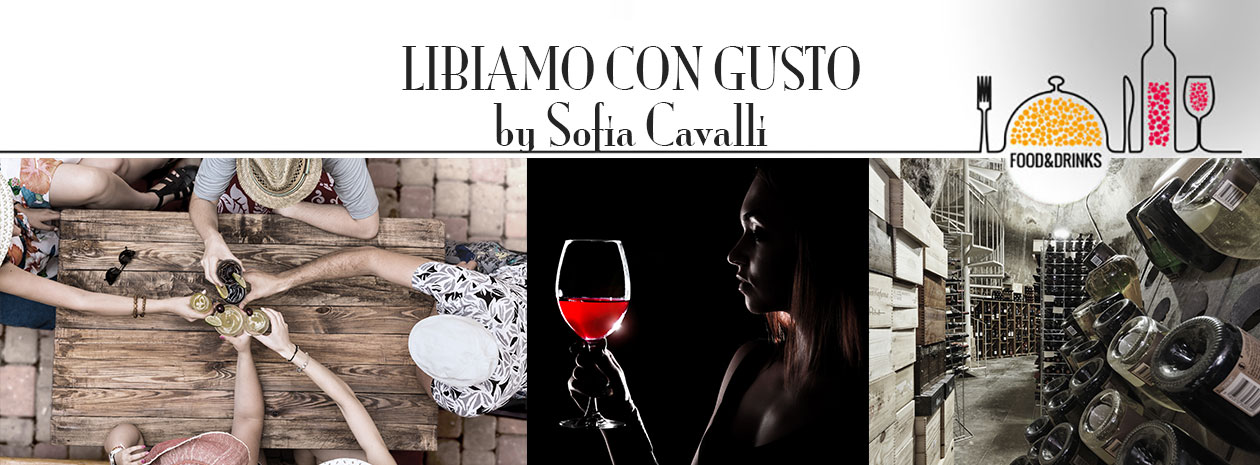
Forget food, think mood
July 19, 2017Luis Fonsi Speaks to DANTE: How Despacito Has Conquered the World
August 5, 2017 Turkey has been in the news for its attempted coup, refugees and terror attacks. Still, our International Editor Alice James visited Istanbul’s bazaar – twice – a while ago. She came back with more than she bargained for – and a good story. Read on!
Turkey has been in the news for its attempted coup, refugees and terror attacks. Still, our International Editor Alice James visited Istanbul’s bazaar – twice – a while ago. She came back with more than she bargained for – and a good story. Read on!
So I should explain why I’m in Istanbul, running round the Grand Bazaar looking for a photograph of Jimmy Carter…
It all started two years ago when my sister and I had the bright idea of dragging Dad to Istanbul. Our mother had died a few months previously and we hoped that a family holiday in the shadow of the Hagia Sophia, the most exotic location we could think of, might demonstrate that life could go on without her.
We’d had worse ideas, to be honest. Istanbul turned out to be stuffed to the gunwales with exquisite architecture, heaving with fascinating history and buckling under the weight of Dad-friendly cafes – 13 million people huddled together in a city entirely powered by endless rounds of tea. He felt at home right away.
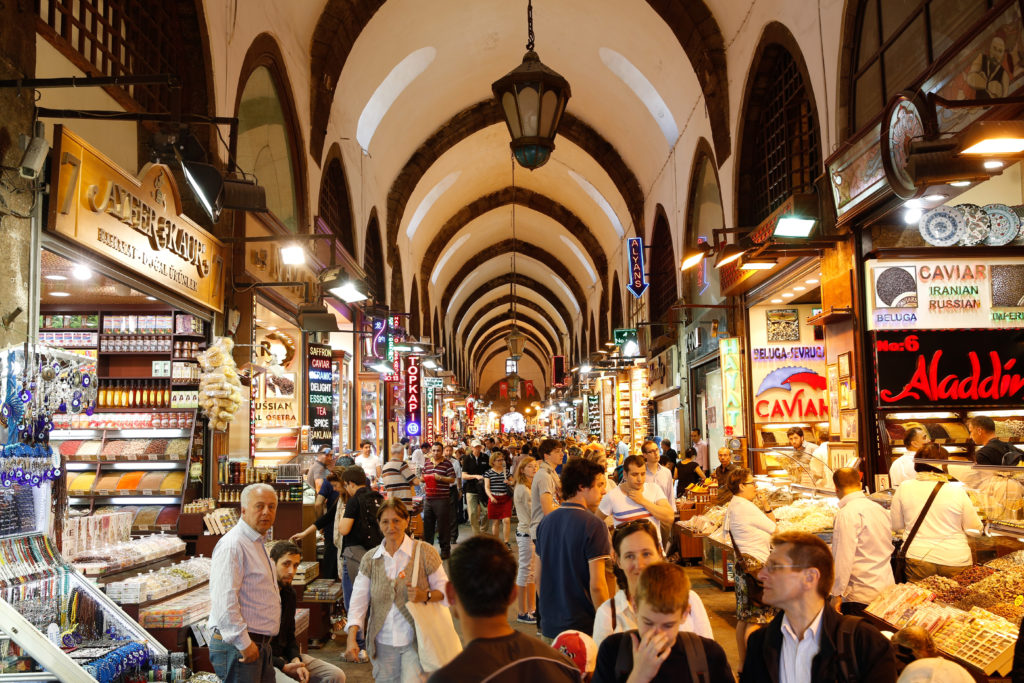
And we were good little tourists. We duly visited each and every destination that our guidebook assured us was unmissable. Blue Mosque? Did it. Basilica cistern? Yup, did that too. Topkapi Palace? You could not have kept us out. Grand Bazaar? Hell, yeah!
My knowledge of the Grand Bazaar had previously been culled from the scene in Skyfall where James Bond takes a somewhat full-throttle approach to holiday shopping. While Sam Mendes does a good job of highlighting quite how buff Daniel Craig looks on a motorbike, one thing that the film doesn’t convey is just how labyrinthine the ancient market is. There are more than 4,000 shops under its domed roofs, set along identical brightly coloured passageways. Their counters creak under mounds of pashminas, spices, glass lanterns and kilims. It takes moments to lose your direction but four cups of tea and an expensive packet of cinnamon sticks to find it again.
Dad, inevitably, homed in on the antiques quarter, where trays of Turkish delight and baklava gave way to dusty suits of armour, mother-of-pearl clocks and cases bearing coins dating from the Byzantine, Persian or Roman empires depending on your taste of history. My sister and I, alas, have no taste for history. Our savings were destined for silk scarves, leather handbags and the odd box of comb honey, so we left him drinking tea with a vendor of vintage carpets and edged back towards the louder and less decorous area of the market.
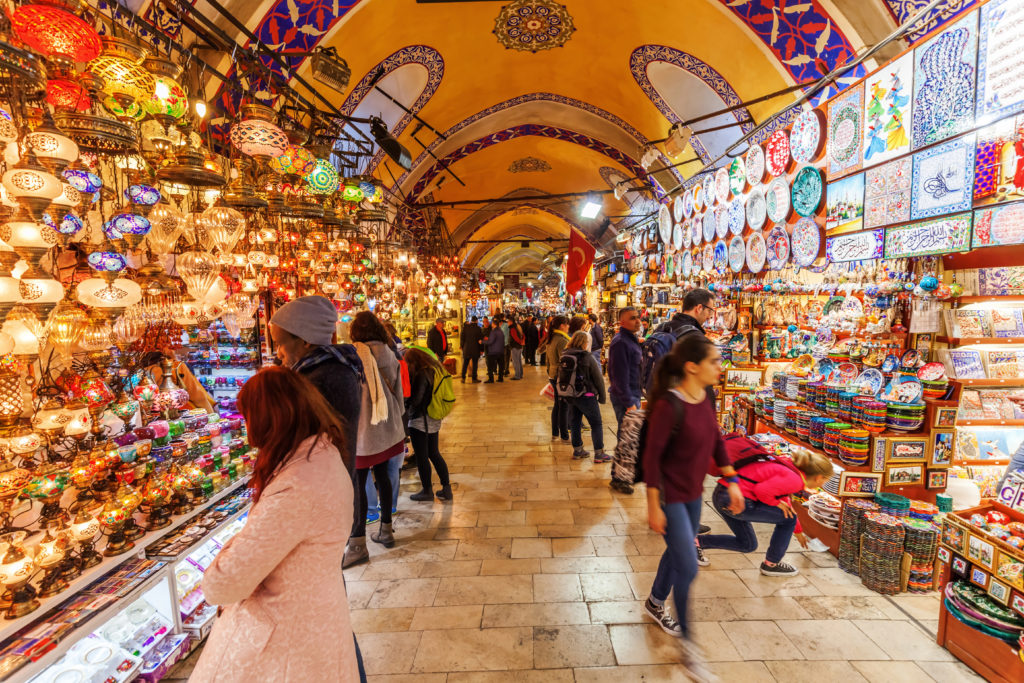
Our mistake. Without Dad’s chaperoning, we found ourselves subject to an even more cacophonous barrage of sales pitches, like the Pope trying to go on a quick hand-shaking jaunt but without the benefit of a cavalcade. We were about to give up when a dapper little man, at least 150 years in age, stepped out from a tiny silk-shop doorway and asked with great courtesy:
“Were you looking for me?”
It’s a good line. I’m sure he’d found it highly effective over the years. It worked like a treat on us.
“Yes,” said my sister and he gestured us in to the quiet of his miniscule retail haven and began the time-honoured process of seating us comfortably and summoning his grandson to feed us tea.
In Turkey, tea is served in a glass the size of a thimble. After 48 hours in the city, I had realised that this is because basic social protocols require you to drink 20 or 30 glasses of the stuff over the course of a normal day. Measures are kept small for humanitarian reasons. As we sipped decorously, our new Grandfather regaled us with tales of the Grand Bazaar over the decades and the perils of running a family business, while – under direction – his grandson flung endless coloured scarves down onto the counter for us to view.
There were airy pashminas and shatoosh so finely spun that you could thread them through a wedding ring. We bought two damask shawls woven from lush Iranian silk. Before we were allowed to bid our new best friend goodbye, he showed us the pride of his shop, a collage of photographs. Each depicted him alongside a celebrity who had shopped in his tiny boutique: German pop stars, French models, Turkish politicians and – incredibly – a beaming Jimmy Carter. We expressed suitable awe and were rewarded with a delightful smile.
“Come and see your Grandfather again,” he said. “I am always here.”
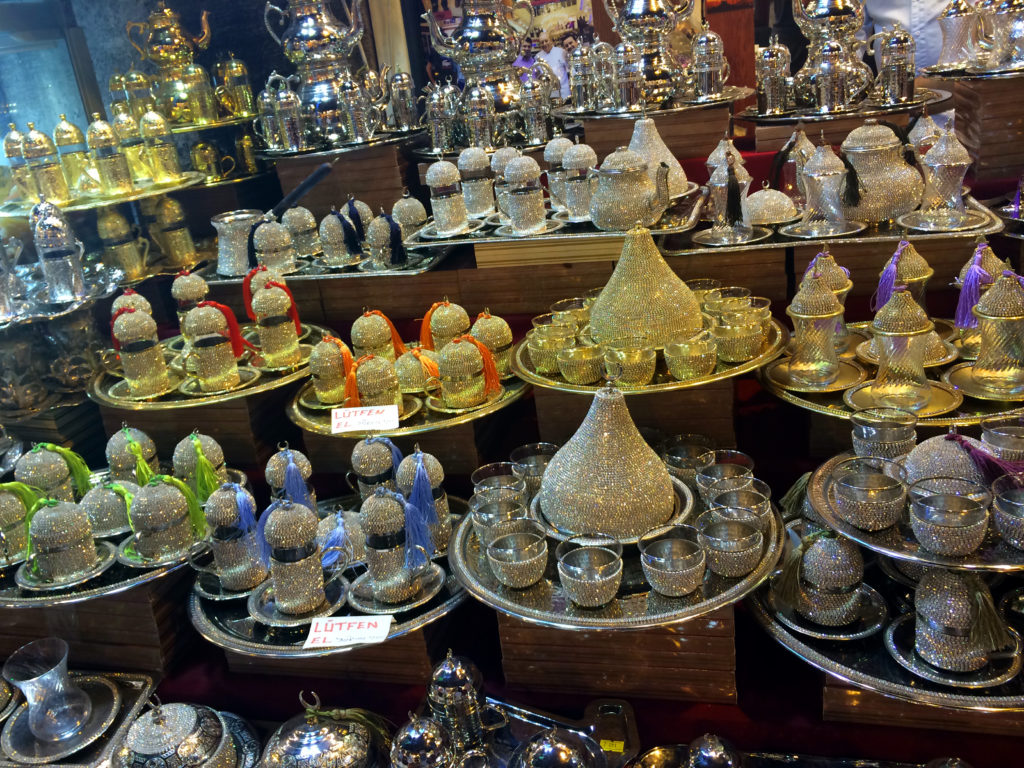
*
The words stayed in my mind, and I decided to act on them as this year’s English spring dragged on, bringing its usual gifts of late snow and early hay fever. I booked a ticket to Ataturk airport.
“Take mosquito repellent,” said Dad.
“Take your Blackberry,” said my boss.
“Buy me another scarf,” said my sister.
I ignored the first two, but the third was appealing. Why not indeed? I would return to the little silk shop and drink tea with my adopted Grandfather again. And it’s good to have a destination in mind, especially one involving retail therapy. I left the insect spray and the Blackberry behind in England – they could keep one another company on my dressing table.
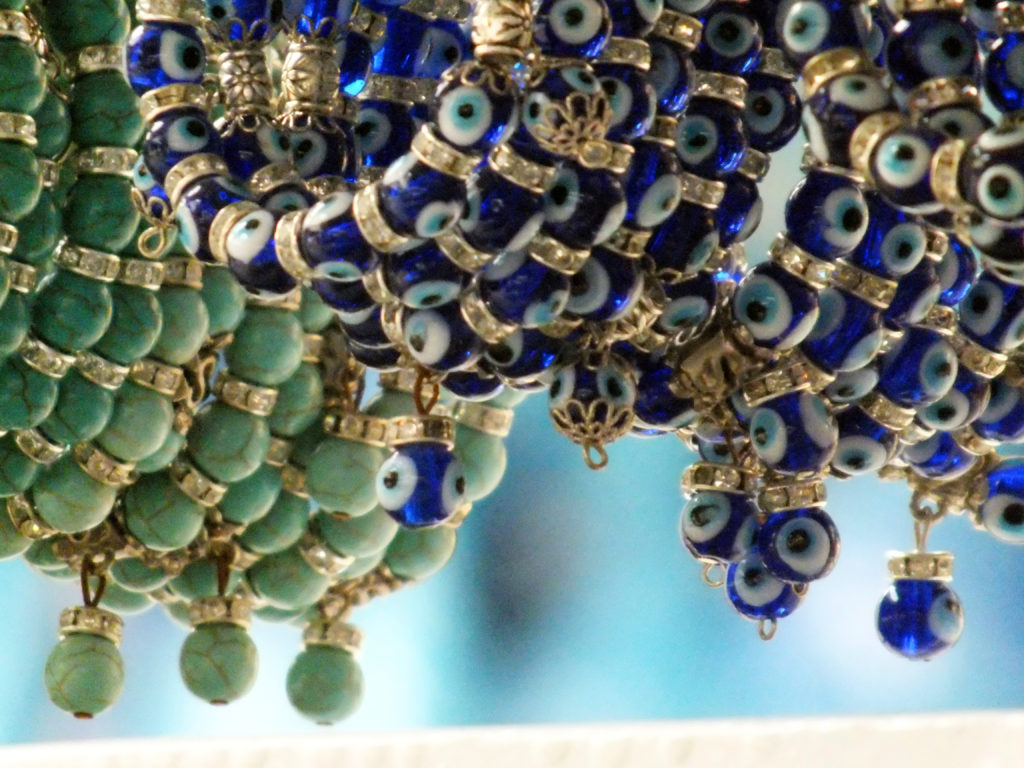
I am one of those people who have been blithely assuring all and sundry for years that they have an excellent sense of direction. Truth be told, I just know how to follow Google maps on my phone. I am a slow learner, but why should I admit it? Nonetheless, I am barely off the plane when, purse in hand, I wend my way back to the Grand Bazaar and begin the serious business of getting completely and utterly lost.
Here’s the thing. One scarf shop looks much like another and after a while all the lovingly stacked packets of vacuum-sealed jasmine start to blend into one. And while the welcoming and wily vendors might know all the English necessary to sell you a four-foot high glass chandelier and ship it back to London tax free, they prove unequal to the task of telling me where I might find an old man with a picture of Jimmy Carter on his wall. Or unwilling.
“My brother/father/cousin Rafel sells beautiful scarves,” they say, shaking their heads sadly. “I could take you to him?”
After forty minutes, though, I start to think my luck has turned.
“American Jimmy, yes?” one stallholder asks. My heart leaps and I nod. “I take you,” my informant assures me.
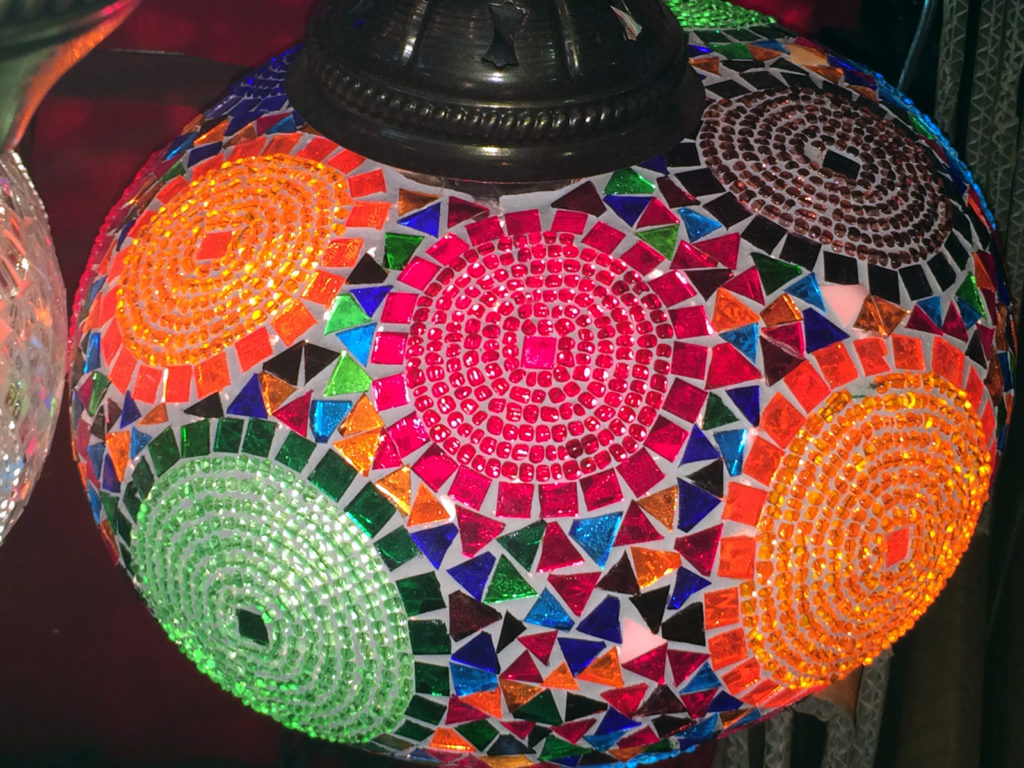
And we are off. Second baklava stall on the right and straight on until morning. We weave a complex path through the maze, my native guide somehow shielding me from the hawkers and pedlars and their glorious wares. Unaccosted we arrive at a tee-shirt stall. A tall man presides over a sea of printed cotton.
“My mate went to Istanbul…” the front of one proclaims. I never find out what the reverse says because my heart has sunk back down from its new perch and come to lurk somewhere in a shoe. “Jimmy from New York” the sign behind the stall proclaims. My Grandfather’s emporium remains as lost as ever.
I pour out my sadness to Jimmy who, it turns out, once went to Manhattan for a week with his brother.
“It’s not that easy, miss,” he says. “You see, Jimmy Carter was here three years ago. He shopped for maybe two hours. Half the people here have a photograph of him. But my Uncle Reto, you know, he sells beautiful scarves.”
I wander off. The Bazaar has lost its charms. The scent of cinnamon is stale in my nostrils and the clamorous calls of the shopkeepers hold no more music for me. I decide to return to my hotel, a scarfless failure. Then, incredibly, it happens. A young man hails me from his shop door in flawless English.
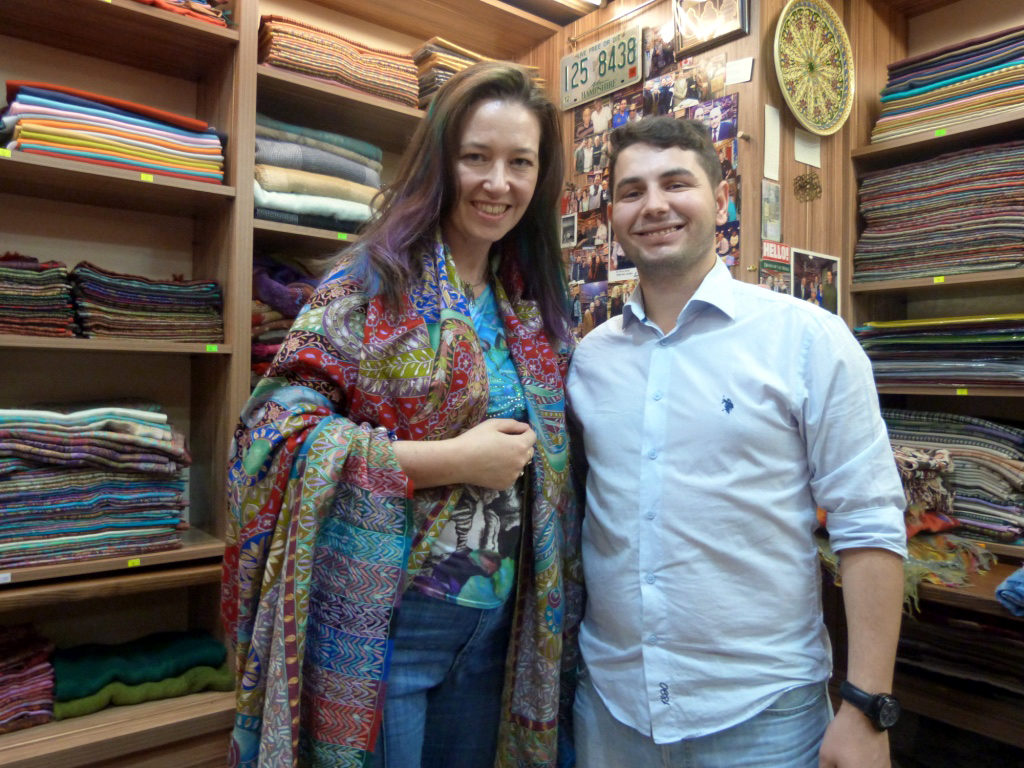
“Were you looking for me?” – Alice finds the right shop at last
“Were you looking for me?”
I turn and stare at him, wide-eyed but confused.
“Maybe,” I say. “Does your Grandfather have a picture of Jimmy Carter on the wall of his shop?”
“Most certainly,” he replies. “Please come in.”
The shop is unchanged, its shelves stacked floor to ceiling with myriad colours of woven and embroidered silk, wool and linen. Tea – of course – is procured. Some rituals break for no man. Or woman.
“I am so sorry,” he says after the second glass. “My grandfather died three months ago. He was travelling here on the ferry. He never took a day off, you know. One moment admiring the sunrise, the next – bang. Just like that. But he was doing what he loved: being a man of Istanbul, running this shop. A good death.”
I stare at him. My eyes prick but I don’t speak; anything I say will surely sound shallow and trite, because this was someone I met for a scant half an hour two years ago, while the young man before me has lost someone he knew all his life, who loved him, who left him this livelihood… He’s barely into his twenties, trying to emulate the bonhomie of a man with more than half a century of charming tourists under his belt. It can’t be easy.
“I’m sorry,” I eventually compromise on. “He was special.”
“Special,” he says, as if tasting the word, and I wonder for a moment if it’s one he hasn’t heard before, but then he nods. “Yes, special. He touched many people.”
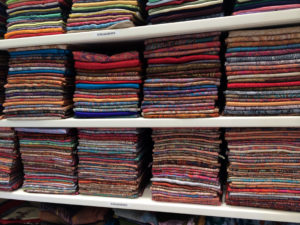 We toast a man’s passing. I spend 700 Turkish lira. We shake hands. I’m ready to go. Yes, yes, of course. I know what you’re all wondering. It’s just that by then I’m a little overwhelmed so I almost forget to ask. I get to the door before it occurs to me.
We toast a man’s passing. I spend 700 Turkish lira. We shake hands. I’m ready to go. Yes, yes, of course. I know what you’re all wondering. It’s just that by then I’m a little overwhelmed so I almost forget to ask. I get to the door before it occurs to me.
“Jimmy Carter,” I say. “What did he buy?”
“Ah.”
The young man opens a dark mahogany drawer and takes out a hand-embroidered wisp of fabric. It almost glitters, as though someone has found a way of making opals into silk. It’s gossamer fine, almost translucent and unfolds, unbelievably, again and again and again – truly, it’s the size of a bath towel and would fit into a matchbox.
“Each takes eighteen months to make,” he whispers. “Every stitch by hand: 75,000 Turkish lira. He bought one for his woman.”
 Is it true? Who knows and who cares! Did Jimmy the tee-shirt seller ever go to New York? It matters not. The story is in the telling. We bid each other a second fond farewell.
Is it true? Who knows and who cares! Did Jimmy the tee-shirt seller ever go to New York? It matters not. The story is in the telling. We bid each other a second fond farewell.
“You came to find your Grandfather,” he says, “but know you have a Brother here in the Grand Bazaar.”
I tuck my sister’s scarf under my arm and head out into the chaos and cacophony of the market. The shouting of the stallholders is music to my ears and the scent of cinnamon is as sweet as summer. And I am lost in minutes. I am a slow learner. Some things don’t change.
